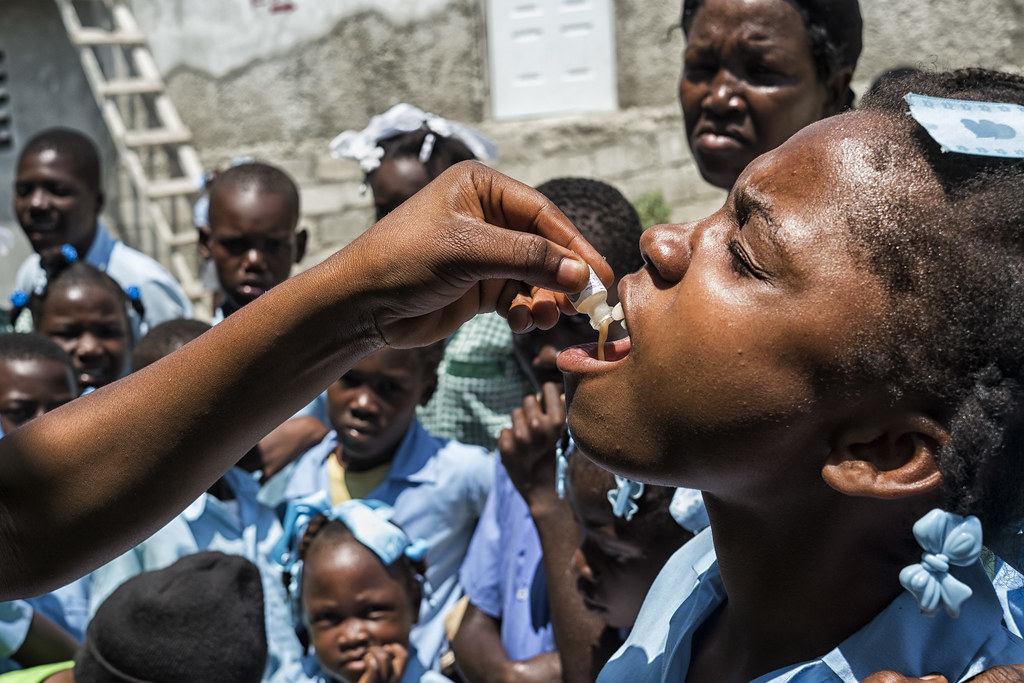
CHOLERA
Cholera is a bacterial disease usually spread through contaminated water. Cholera causes severe diarrhea and dehydration. Left untreated, cholera can be fatal in a matter of hours, even in previously healthy people.
Modern sewage and water treatment have virtually eliminated cholera in industrialized countries. The last major outbreak in the United States occurred in 1911. But cholera is still present in Africa, Southeast Asia and Haiti. The risk of cholera epidemic is highest when poverty, war or natural disasters force people to live in crowded conditions without adequate sanitation.
Cholera is easily treated. Death results from severe dehydration that can be prevented with a simple and inexpensive rehydration solution.
SYMPTOMS
Most people exposed to the cholera bacterium (Vibrio cholerae) don’t become ill and never know they’ve been infected. Yet because they shed cholera bacteria in their stool for seven to 14 days, they can still infect others through contaminated water. Most symptomatic cases of cholera cause mild or moderate diarrhea that’s often hard to distinguish from diarrhea caused by other problems.
Only about 1 in 10 infected people develops more-serious signs and symptoms of cholera, usually within a few days of infection.
Symptoms of cholera infection may include:
Dehydration may lead to a rapid loss of minerals in your blood (electrolytes) that maintain the balance of fluids in your body. This is called an electrolyte imbalance.
ELECTROLYTE IMBALANCE
An electrolyte imbalance can lead to serious signs and symptoms such as:
SIGNS AND SYMPTOMS OF CHOLERA IN CHILDREN
In general, children with cholera have the same signs and symptoms adults do, but they are particularly susceptible to low
blood sugar (hypoglycemia) due to fluid loss, which may cause:
CAUSES
A bacterium called Vibrio cholerae causes cholera infection. However, the deadly effects of the disease are the result of a potent toxin called CTX that the bacterium produce in the small intestine. CTX binds to the intestinal walls, where it interferes with the normal flow of sodium and chloride. This causes the body to secrete enormous amounts of water, leading to diarrhea and a rapid loss of fluids and salts (electrolytes).
Contaminated water supplies are the main source of cholera infection, although raw shellfish, uncooked fruits and vegetables, and other foods also can harbor V. cholerae.
RISK FACTORS
Everyone is susceptible to cholera, with the exception of infants who derive immunity from nursing mothers who have previously had cholera. Still, certain factors can make you more vulnerable to the disease or more likely to experience severe signs and symptoms. Risk factors for cholera include:
COMPLICATIONS
Cholera can quickly become fatal. In the most severe cases, the rapid loss of large amounts of fluids and electrolytes can lead to death within two to three hours. In less extreme situations, people who don’t receive treatment may die of dehydration and shock hours to days after cholera symptoms first appear.
Although shock and severe dehydration are the most devastating complications of cholera, other problems can occur, such as:
PREVENTION
DIAGNOSIS
Although signs and symptoms of severe cholera may be unmistakable in endemic areas, the only way to confirm a diagnosis is to identify the bacteria in a stool sample.
Rapid cholera dipstick tests are now available, enabling health care providers in remote areas to confirm diagnosis of cholera earlier.
TREATMENT
Cholera requires immediate treatment because the disease can cause death within hours.